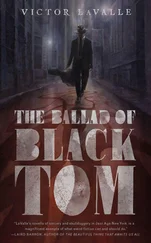Her mother looked up from her lap. Her eyes were moist. Her jaw hung slack and her lips were open.
Loochie didn’t try to argue. Instead she hopped out of her chair and marched to her bedroom. When Loochie returned she held Sunny’s blue knit cap in one hand.
“Well then how did I get this?” She shook the knit cap, its pompoms dancing.
Her mother looked at her daughter’s evidence. “It’s just a cap,” she said quietly.
“But you should’ve seen my clothes when I came in!” Loochie said. “They were covered in the mud.”
“Bring them to me,” her mom said. Loochie went and yanked them from the hamper. The clothes looked worn down and wrinkled and wet, but they were clean.
“That’s just ’cause I scrubbed them!” Loochie shouted.
Loochie’s mother touched her daughter’s forehead with the back of her hand. She dropped her hand and watched Loochie with a grave seriousness.
“Go to your room,” her mother said, her voice lacking any emotion.
Loochie didn’t know what to do just then so she just got up. Her mother didn’t believe her.
Slowly, Loochie’s mother shuffled back into the bedroom. As she did she looked over her shoulder at Loochie one more time. A look of confusion, pure bafflement, was there.
Loochie turned to the kitchen window. She was about to close it, but before she did she leaned her head out. Her mother’s doubt seemed to infect her. Could she really have made it all up? She looked to the sixth floor, just in time to see a long, narrow hand reach out from the apartment. Loochie knew that hand. It was Alice’s.
“I hope you like it,” Loochie whispered.
In another year, at the age of thirteen, Lucretia Gardner would be diagnosed with bipolar disorder. Over the rest of her adolescence she would see many different doctors and be admitted to a number of different mental hospitals in Queens. In the first year of her illness Loochie’s mother would tell the admitting staff about the time Loochie claimed to have battled monsters inside a park inside apartment 6D. To her mother, and the doctors, this counted as a clear manifestation of mental illness, an amped-up delusion, the trick of a troubled mind. Loochie learned to stop arguing otherwise. Folks like that could never be convinced. Sunny’s death was no delusion, though. Neither was Loochie’s grief, which lasted a year. The doctors and her mother, and later even her brother, dismissed Loochie’s story, but she never doubted that it was true. Louis had turned out to be right about one thing, however: Being young didn’t protect anyone. Horrors came for kids, too. She understood that now. But that didn’t have to be the end of the story. Because of Sunny, so much joy had come for her as well.
After Loochie saw Alice take the cake, she closed her kitchen window. She shut the security gate. She went to her room just as her mother had told her to do. She lay down in bed. Sunny’s blue cap was tucked under her pillow. Keeping it close comforted Loochie. That night she slept the good sleep. In her dreams there were no monsters, only friends.
Read on for an excerpt from Victor LaValle’s The Devil in Silver
BOOK GROUP ENDED with a silent march. The patients left the conference room quietly. Sam and Sammy went together. The others, one by one. Only Pepper remained at the table. Dr. Barger and Josephine waited for him to leave so they could lock the door behind him.
What had Pepper been expecting? To declare he’d been trapped here through deceit and have the others, who’d been trapped even longer, gnash their teeth and weep for him? To confess he’d seen a monster and have everyone melt and hold him close? Maybe so. But that’s not what he’d gotten. He’d admitted to being frightened. The reaction of his peers? They wanted lunch.
Pepper finally left the room.
Josephine moved behind him, keeping the Bookmobile between them.
Dr. Barger locked the door.
Lunchtime.
When Pepper reached the nurses’ station, he found half the patients in an orderly line. Scotch Tape stood inside the station, holding a clipboard. He caught Pepper’s eye.
“No more room service for you, my man. Before every meal, you come here first to get your meds, like everyone else.”
Pepper didn’t see any point in refusing. He went to the back of the line. Where Loochie and Coffee and Dorry and Sammy and Sam were. They didn’t speak to him. They didn’t even look at him. Had he said something wrong in there?
Miss Chris was beside Scotch Tape, holding a tray of small white cups. As each patient stepped up to the desktop, Scotch Tape read off a series of medicines: Risperdal. Topomax. Depakote. Celexa. Luvox. Nardil. Dalmane. Haldol. Lithium. (Just to name about a third of Scotch Tape’s list.) Miss Chris checked the cup to be sure the right pills were in each. Then she handed the cup to the patient and both staff members carefully watched each one swallow.
That was the system. Meds at breakfast, lunch, and dinner.
Pepper swallowed his Haldol and lithium. He was strangely grateful for the pills. They shaved down the sharp edges of his emotions. Until he felt smooth and round. Easier to roll along, no matter the bumps and curves. He walked down Northwest 5, toward the television lounge, alone. No doubt he’d lost his job with Farooz Brothers by now. Those guys would fire someone if he missed more than two days. Forget about four weeks. But Pepper just kept rolling.
His rent was paid automatically from his checking account. A system that his landlord (an agency rather than a person) had demanded of all tenants back in 2009 when layoffs first began in big numbers. Electricity, gas, even the cable was probably still working. His life had been disrupted, but not his billing cycles. His cell phone was paid automatically, too. Which meant he might still have service. Where had they put his phone? In a baggie with his boot laces and belt. (That baggie then went into a cubby, like in kindergarten, kept with all the others in a locked room on Northwest 1.) How long could he keep current on his bills? How long would his life outside wait for him? He had about four thousand dollars in his checking account. Which would last longer — his savings or his captivity? Keep rolling.
He reached the television lounge and the orderly handed him a lunch tray. The gray tray, with its little segmented sections, reminded Pepper of the ones they used to hand out in grade school.
Pepper moved to an empty table, as far away from the television as possible. The flat screen showed the local news. There was a remote control for the TV, an old man held it like a scepter. He lifted it high and increased the volume so he could hear over the chatter of the growing lunch crowd.
The orderly said, “Not too loud, Mr. Mack.”
The old man turned and glowered at the orderly, a kid. “It’s my half hour to control the remote,” he said. “That includes the volume.”
Mr. Mack looked to his best friend, who sat beside him. “Is this youngblood giving me orders?”
His friend shrugged noncommittally.
Both men wore threadbare sport coats. Under these were their patient-issue blue pajamas; theirs were bright and stain-free. Both had on worn-down loafers, too. They looked sharp, especially in here. Compared with everyone else, they looked like Duke Ellington and Cab Calloway.
The orderly raised his voice now. “You’ve got to think of everyone in the room.”
“Fuck everyone in the room,” Mr. Mack muttered.
“Language!”
Mr. Mack put up a hand in a gesture of peace. “I mean I’m trying to help these people learn about current events.” Mr. Mack looked back at the orderly. “And Frank Waverly doesn’t think I need to listen to you anyway.”
Читать дальше












